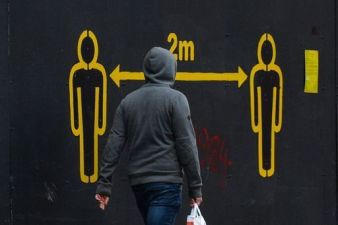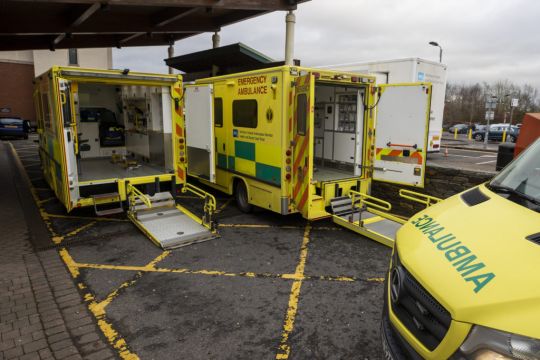Members of the military are to be brought in to support health staff in Northern Ireland in the third spike of the Covid-19 pandemic.
Stormont Health Minister Robin Swann said that while he hopes the peak of hospital admissions has been hit, he warned the number of patients needing critical care is likely to increase further.
On Wednesday, there were 832 Covid-positive patients in hospital, 67 of whom were in intensive care units.
A further 22 deaths of patients who tested positive for the virus were recorded in the region, as well as another 905 cases.
Mr Swann said he made the formal request for extra help last week when it was made known that a number of medical technicians were available.
More than 100 medically trained technicians are set to help in Northern Ireland.
I sincerely hope this will not be viewed as a divisive decision
Mr Swann pointed out the Ministry of Defence has previously provided assistance, transporting seriously ill patients by air to England and giving logistical advice.
“I sincerely hope this will not be viewed as a divisive decision because I can assure it is not,” he told an Executive press conference.
“The Armed Forces have medical expertise and it would have been an abdication of responsibility on my part if we didn’t avail of that.”
Tensions
Use of the Army has prompted tensions in the past in Northern Ireland but it has previously helped out with weather-related incidents.
The minister added: “I welcome this agreement, which comes at a particularly challenging and critical period for our health service.
“The Armed Forces have provided invaluable support in this pandemic, including aeromedical evacuation, real-estate and ongoing logistical planning.
“I thank the MoD for this support and for this timely Military Aid to the Civil Authorities (MACA) agreement finalised today.”
Mr Swann also indicated that while the infection rate is dropping in Northern Ireland, it needs to be pushed down further.
He said he will bring a paper to a meeting of the Stormont Executive on Thursday where the current lockdown restrictions are to be reviewed.
“I will bring a paper to that meeting setting out my recommendations,” he said.
“I will not pre-empt those discussions but I can make clear that this is not the time to open any floodgates. This is not the time to take premature decisions that would lead to another spike in cases and yet more crushing pressure on our hospitals.”
LATEST #COVID19 VACCINE UPDATE FOR NI:
160,396 vaccines have been administered, of which 138,436 were first doses and 21,960 were second doses. pic.twitter.com/9bTD043PDC— Department of Health (@healthdpt) January 20, 2021
Some 160,396 coronavirus vaccines have now been administered in Northern Ireland.
Of this total, 138,436 were first doses and 21,960 were second doses.
Patricia Donnelly, head of the Covid-19 vaccine programme, said the effort is mainly limited by supplies of the vaccine at this stage.
She said there is enough to vaccinate all those aged 80 years and over, and to make a start on those aged 75 years and over.
“We have now completed care homes other than a very small number that have been in outbreak,” she said.
“Supplies are the limiting factor.” She added that further deliveries are expected in the next week.
Meanwhile, Mr Swann expressed his disappointment with the draft budget for Northern Ireland.
“What we need is a long-term financial settlement for health and social care, a settlement that allows us to transform services and tackle core problems, including waiting lists, staffing and staffing supports,” he said.

“It is my opinion that this draft budget falls well short of that.
“I say that not to make a party political point or to criticise my Executive colleagues.
“This is a tough budget for all departments and we certainly hope that the Treasury rethinks its approach to public spending, but if it doesn’t, difficult decisions will be required at a local level, and I will battle with all my energy and determination to secure more funds for health.”







